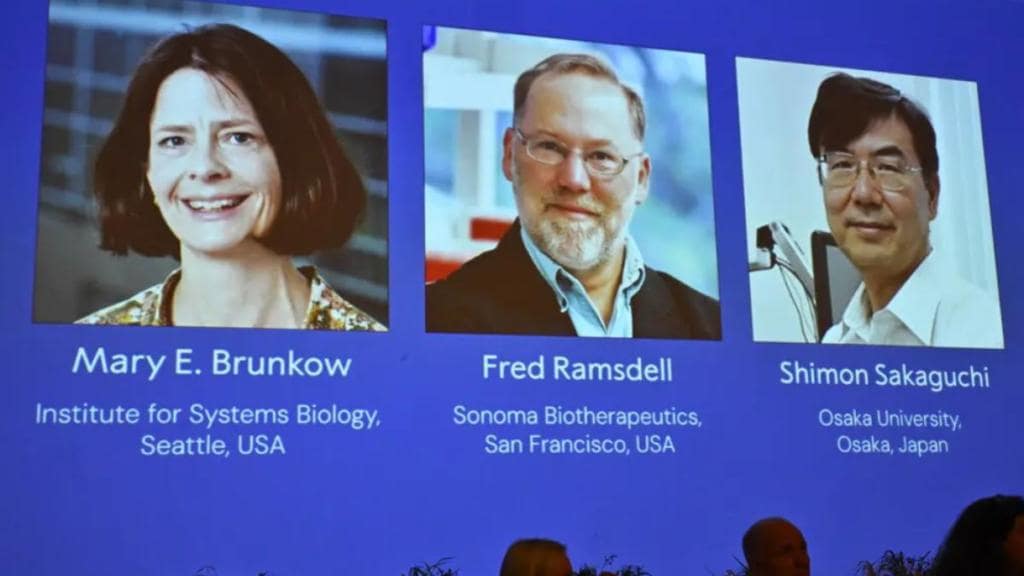Scientists Mary Brunkow, Fred Ramsdell and Shimon Sakaguchi have been awarded the 2025 Nobel Prize in Physiology or Medicine for their groundbreaking discoveries on peripheral immune tolerance. “The body’s powerful immune system must be regulated, or it may attack our own organs. [They] made groundbreaking discoveries concerning peripheral immune tolerance that prevents the immune system from harming the body,” the Nobel Assembly announced on Monday.
“Their discoveries have laid the foundation for a new field of research and spurred the development of new treatments, for example for cancer and autoimmune diseases,” it added.
The prestigious award, decided by the Nobel Assembly at Sweden’s Karolinska Institute, carries a cash prize of $1.2 million and a gold medal, which will be presented by the King of Sweden.
Who are Mary Brunkow, Fred Ramsdell and Shimon Sakaguchi?
64-year-old Mary E Brunkow is a Ph.D holder from Princeton University. According to the Nobel Prize’s official website, he is a senior program manager at the Institute for Systems Biology, in Seattle.
Fred Ramsdell, born in 1960, holds a Ph.D from the University of California and is Scientific Advisor at Sonoma Biotherapeutics in San Francisco.
Shimon Sakaguchi, 74, has an MD and Ph.D from Japan’s Kyoto University. Sakaguchi is a Professor at the Immunology Frontier Research Center, Osaka University, Japan.
About their Nobel-winning work
The Nobel-winning research traces its roots back to 1995, when Shimon Sakaguchi made the first major discovery about how the immune system prevents attacks on the body’s own cells. Mary Brunkow and Fred Ramsdell followed up with a crucial breakthrough in 2001. Sakaguchi connected their findings two years later and established the foundation of what is now known as peripheral immune tolerance.
Last year’s medicine prize went to Americans Victor Ambros and Gary Ruvkun for discovering microRNA — genetic switches that regulate cellular activity.


